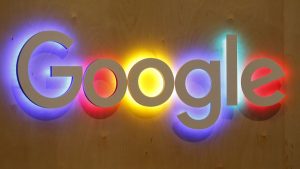Data privacy has become a major issue for both companies and customers alike. While there was a time when customers were blissfully unaware, most have become privy to the ways in which companies are using, following, and selling their personal information.
In a recent survey conducted by Salesforce, 46% of customers feel they have lost control over their own data. Meanwhile, according to a study by Pew Research Center, 70% of Americans believe their personal data is less secure now than it was five years ago.
So, Google’s new opt-out features are exactly what people want right now. The tech giant announced that it is giving Gmail users the option to easily opt out of smart features that use personal data to improve their experience. Other features like Smart Compose, email summaries, and automated calendar entries could also be "degraded" or entirely switched off.
For those who take their privacy seriously, this control could be exactly what they were hoping for. But the move comes as the company looks to reassure global regulators that it offers genuine user choice around how it processes data.
Regulators in Europe and the U.S. have long criticized the company for privacy settings that theoretically offer users the ability to opt out of data use, but are hard to use in practice, though easily reversible.
In 2019, French data protection watchdog CNIL fined Google a record-breaking $56 million for failing to provide users with transparent and understandable information on its data use policies. The authority’s investigation took four years and followed a complaint filed by Gibmedia, a French company that manages a range of websites offering weather forecasts, corporate data, and directories.
Google isn’t the first company to offer users a means to opt-out of features that threaten their data privacy. This year, Apple announced that its iOS 14 update would require that all apps receive user consent in order to access the unique advertising identifier of iPhones (Identifier for Advertisers, or “IDFA”) or use the IDFA to automatically track users.
What seemed to be a revolutionary offering was delayed. After complaints from partners, such as Snapchat and Facebook, Apple said it will delay that requirement until early 2021.
The postponement of the opt-in privacy requirements will give publishers like Facebook, Snapchat, and Zynga more time to comply with the new rules and avoid a potentially sizable drop in Q4 ad revenue.
Earlier in 2018, Washington regulators required utilities to offer opt-outs to maximize adoption of smart-meters. They also insisted the state's investor-owned utilities allow customers to choose not to participate. There was vocal opposition to the new meters in Washington including a "Smart Meter Objectors Group."
The proliferation of smart devices is exciting, though the invasion of digitization threatens data privacy. While regulators are stepping in, customers are increasingly taking matters into their own hands, which means they’ll likely to go where the opt-outs are. It is up to companies to take notice and start offering these options.
























